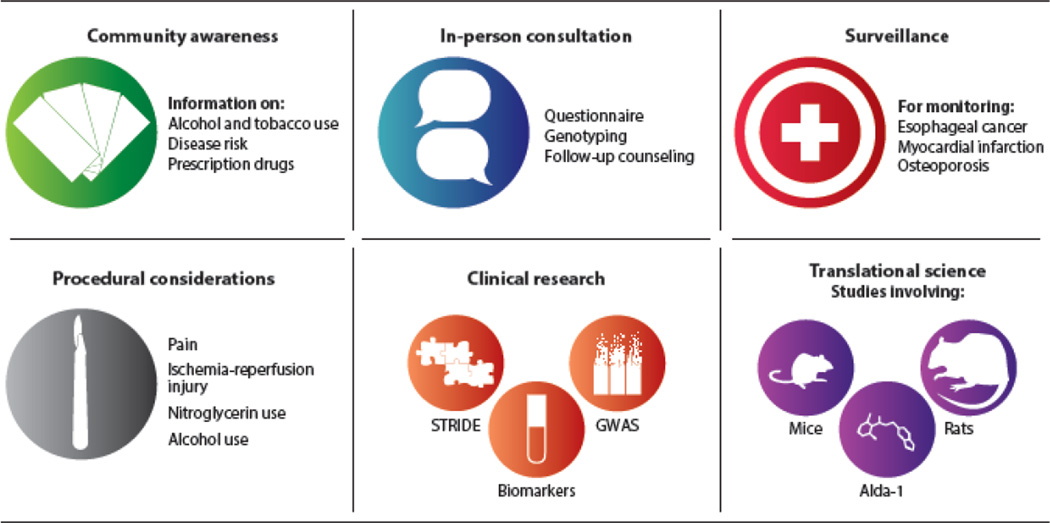Figure 5.
A personalized medicine plan for Asian Americans with the ALDH2*2 variant. The goal is to create a focus on preventative care, surveillance, and management while incorporating a clinical-translational approach for further research. Preventative care should focus on raising community and physician awareness in addition to implementing one-to-one patient counseling. Surveillance measures such as screening for high-risk diseases should occur, and awareness when physicians perform surgical procedures for those with the ALDH2*2 variant should be stressed. Additional scientific studies are needed that use translational research tools with platforms like the Stanford Translational Research Integrated Database Environment (STRIDE), biomarkers, and additional genome-wide association studies (GWAS), particularly for Asian Americans. In addition, translational basic science studies are needed in relevant models such as the ALDH2*2 knock-in mouse and how chemical compounds, including Alda-1, mechanistically modify disease.

